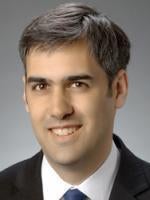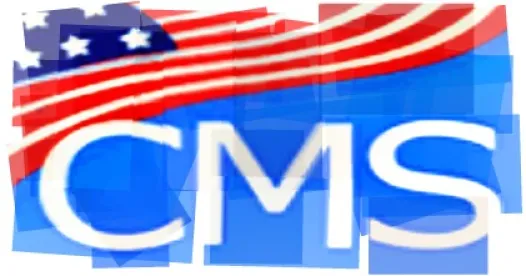California’s Medicaid agency has posted draft language of a new state plan amendment (SPA) that would make major changes to federally qualified health center (FQHC) and Rural Health Clinic (RHC) reimbursement. Public comments may be made on the proposal until 5 PM on March 23, 2018. Following review of public comments, the California Department of Health Care Services (DHCS) may make revisions to the SPA before submitting it to the federal Centers for Medicare and Medicaid Services (CMS) for approval. If approved, the SPA would be retroactive to January 1, 2018.
Here are five of the most noteworthy changes:
1. Imposition of Productivity Standards
The draft SPA would apply a minimum productivity standard to the calculation of the prospective payment system (PPS) rate for FQHC or RHC reimbursement under Medi-Cal, California’s Medicaid program. The proposed productivity standard requires physicians to document 3,200 visits per year and applicable allied health professionals like physician assistants and nurse practitioners to document 2,600 visits per year. Unless an FQHC or RHC could demonstrate that circumstances justify an exception, DHCS would be required to reduce the clinic’s PPS rate if it failed to meet minimum visit requirements in a rate-setting fiscal year. The draft SPA provides little detail on how the productivity standards are actually determined and how they would be applied, as well as the types of documentation that would be deemed satisfactory to support the relevant calculations and exception requests.
2. New Barriers to Receiving an Updated Per-Visit Rate
If approved in its current form, the draft SPA would make it more difficult for FQHCs and RHCs to apply for and receive a new prospective payment system (PPS) rate. Federal Medicaid law requires PPS rates to be “adjusted to take into account any increase or decrease in the scope of [covered] services” furnished by the center or clinic. States generally implement this requirement by establishing a methodology whereby FQHCs or RHCs are entitled to the calculation of a new PPS rate if they demonstrate a change in scope of service.
The draft SPA proposes a number of amendments that would restrict this process. For example, it provides that in most circumstances a change based on the addition of a new service performed by new professional staff only qualifies the clinic or center for an updated PPS rate if there are no current professional staff who are licensed to perform the service. It also provides that changes in ownership, the addition or reduction of staff members to or from an existing service, changes in office hours, and increases in the number of encounters are not qualifying changes. The FQHC or RHC would be unable to submit a change in scope of service request until the change has been in place for a full fiscal year.
3. Limitations on Reimbursement for Services Outside the “Four Walls” of the FQHC or RHC
The draft SPA would also curtail the ability of an FQHC or RHC to be paid by Medi-Cal for services that take place outside the primary location of the clinic or center. In most instances, the draft SPA limits reimbursement for such instances when the FQHC or RHC provides services to an “established” patient who is unable to travel to the FQHC or RHC. An established patient would be defined as someone who has had his or her medical records created during a visit within the four walls of the FQHC or RHC within three years of the offsite visit or who was assigned to FQHC or RHC by a managed care plan pursuant to a primary care provider agreement. In certain other circumstances, reimbursement may also be provided to some permanently homebound patients. The draft SPA would also require that services furnished outside the primary location of the clinic or center be based on a written individualized treatment plan and pursuant to written policies approved by the FQHC or RHC Board of Directors. The draft SPA would also apply restrictions to the treatment of homeless individuals outside the the four walls of the FQHC or RHC.
4. Clarification of Billing for Telehealth and Telehealth Store and Forward Services
The draft SPA proposes new language to address the circumstances when an FQHC or RHC may bill its PPS rate for telehealth encounters or telehealth store and forward services. The policies expressed in the draft SPA appear to modify past guidance on this issue issued by California telehealth organizations that consulted with DHCS. For example, the draft SPA would not recognize the ability of an FQHC or RHC to bill its PPS rate when a patient uses technology to “virtually enter” the FQHC or RHC. It would recognize the ability of an FQHC or RHC to bill its PPS rate when a provider located at a distant site sees a patient located at the FQHC or RHC, provided certain requirements are met (including a contract between the FQHC/RHC and the distant site that compensates the provider at the distant site).
5. New Authority to Bill Marriage and Family Therapist Visits
The draft SPA would add marriage and family therapists to the list of health care professionals who may bill for a face-to-face encounter with a patient, presumably to implement recent state law changes. To bill for marriage and family therapist visits, the proposed SPA would require the FQHC to submit a mandatory change-in-scope-of-service request after the new services have been provided for a full fiscal year, which appears to be more narrow in scope than the process described in state law.
These proposed changes represent a significant restructuring of how reimbursement rates for FQHCs and RHCs are calculated and updated in the Medi-Cal program. They represent a general state tightening of options for rate adjustments otherwise afforded by law to FQHCs, which could significantly impact FQHCs and RHCs and the special populations they serve. Many of the proposed provisions also do not reflect current service delivery practices and standards that FQHCs and RHCs have found necessary for specific populations, such as homeless individuals and other itinerant medically underserved populations. The current invitation for public comment is the best opportunity to provide feedback to DHCS before the changes are officially proposed to CMS.






 />i
/>i

